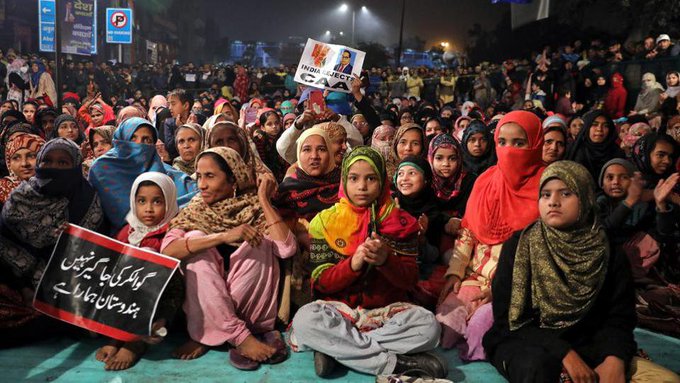The coronavirus pandemic has had diverse implications on the population ranging from economic hardships and loss of social security to enhanced threats to emotional and mental wellbeing and exposure to distressing levels of domestic violence for countless women and children. The whole world is fighting against the novel coronavirus disease and the series of challenges that it has posed before each nation is quite different from the other, but the primary among these are related to health and economic distress. But there is another crisis that seems to be uniting nations no matter how different their socio-cultural realities are, and this pertains to rising levels of domestic violence and abuse.
Women:The Voiceless Victims Amid Quarantine
Quarantine and lockdown measures have been taken throughout the world to contain and control the spread of coronavirus but this also means that women are compelled to stay for longer periods of time with their abusive partners, as none are going out for work.
This has led to the rapid increase in case of domestic violence and has made women suffer to a much greater degree. According to the Chines official report, domestic violence has increased three times than what it was in the last couple of years. In United Kingdom, it has gone up by up to 25%, in the United States it has incased by 35% and in India it has increased by 100%.
The United Nations has warned that every third woman in a developing country like India faces domestic violence and the instances become more frequent when they are locked-in for longer periods of time with abusive partners within the domestic unit.
In a country such as Bangladesh, domestic violence is and always has been a major problem. This has only been amplified over the last couple of months because unemployment and financial uncertainty has been brought in by the pandemic and this has given birth to stress and frustration in people, and domestic violence in families.
Women Become the Silent Spectators of Abuse in Bangladesh
There has been a countywide lockdown to control and contain the spread of coronavirus in Bangladesh like in many different parts of the world. But the lockdown implies extreme hardships for women and children living with partners or members of the family who abuse and torture them.
What adds to the crisis is sustained periods of unemployment and pennilessness and an uncertainty born out of stress and frustration in people and domestic tensions in the family.
Psychologists remind us that negative emotions are born when someone is stressed and this may often lead to violent outbreaks.
These outbreaks bring about expression on weaker members of the family, mostly on women and children but sometimes on elderly parents too.
What is further worrisome is the fact that domestic tensions can bring out domestic violence. As most people are in stress, they tend to become more volatile and domestic privacy tends to give them the feeling of impunity.
Under normal circumstances, women in abusive homes would have the opportunity to run away or seek help but with their abusers at home throughout the day, this is becoming impossible for them. At present, the women and children are struck in the boundaries of their abusers who may exercise control and terrify their victims.
Bangladesh has an important act such as the Women and Children Repression Prevention Act, 2000 which deals with rape, sexual harassment, acid violence, dowry violence and the Domestic Violence(Prevention and Protection) Act,20210 outlawing all forms of domestic violence. But despite the existence of these important legislations, domestic violence is all pervasive and women continue to suffer.
Another major challenge is that domestic violence is often not even reported by the women who may be suffering because they may not have access to information and they have no knowledge that what is happening in domestic violence and it is a crime for which they can access legal remedies.
But the other important reason for lack of action on cases of domestic violence is often that law enforcement officers refuse to take up cases of domestic violence against it is extremely serious.
How Can Bangladeshi Victims of Domestic Violence Be Protected?
It is extremely important for the law enforcement agencies to make sure that all cases of domestic violence are seen to be problematic and no such case is taken lightly. They should take immediate and effective masses while lodging complains and maintain confidentiality and safety of victims. There is also a need to recruit more female officers to deal with cases of domestic violence.
There is also an urgent need for authorities in Bangladesh to make sure that women across the country are aware of the helpline for violence against women and children(the helpline number is 109, it is available 24/7 and is valid throughout the country).
If they get access to this special helpline, they can get access to the legal and police assistance and telephone based counselling. But today it looks like we need many more such helplines to come in the aid of these women. Media also has an important role to play. Media can work by raising awareness, sharing information. TV channels can also publicise information about how to contact the police and the hotlines apart from creating awareness on domestic abuse.
Especially in rural Bangladesh where people have limited access to mobile phones and even when they do, it is owned by the male members- there is a need for more localised agencies that hold regular meetings, check-ins and keep watch on the abusive behaviour of male members. There is also a need to ensure that safer arrangements for staying are made for victims so that they can be protected from the abuse.
This is the time when we must realise that while it is very difficult for us to stay at home because of boredom, let us also think of the women who have been stuck at home with an abuser and are experiencing all sorts of abuse everyday. It is indeed a nightmare for them.














